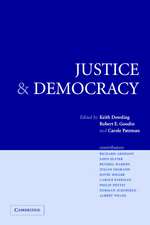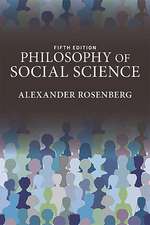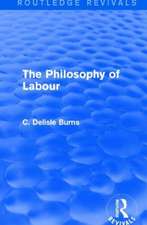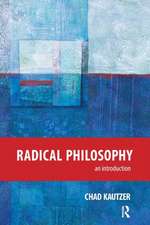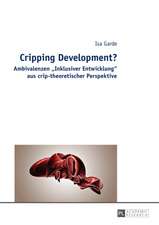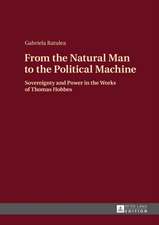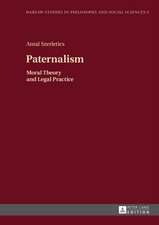An Epistemic Theory of Democracy
Autor Robert E. Goodin, Kai Spiekermannen Limba Engleză Hardback – 3 mai 2018
Preț: 677.86 lei
Preț vechi: 904.71 lei
-25% Nou
Puncte Express: 1017
Preț estimativ în valută:
129.71€ • 141.34$ • 109.30£
129.71€ • 141.34$ • 109.30£
Carte tipărită la comandă
Livrare economică 12-18 aprilie
Preluare comenzi: 021 569.72.76
Specificații
ISBN-13: 9780198823452
ISBN-10: 0198823452
Pagini: 470
Dimensiuni: 164 x 242 x 33 mm
Greutate: 0.88 kg
Editura: OUP OXFORD
Colecția OUP Oxford
Locul publicării:Oxford, United Kingdom
ISBN-10: 0198823452
Pagini: 470
Dimensiuni: 164 x 242 x 33 mm
Greutate: 0.88 kg
Editura: OUP OXFORD
Colecția OUP Oxford
Locul publicării:Oxford, United Kingdom
Recenzii
"Let me just say this is an excellent, comprehensive study, systematically arragned by theme, of results that pertain to CJT.As well as bringing together old results and presenting some novel ones, the authors also deploy a mized method approach that combines analytical proofs and simulation analyses to shed light ont heir subject matter."
Notă biografică
Bob Goodin is Distinguished Professor of Philosophy at Australian National University. He is Founding Editor of the Journal of Political Philosophy and was General Editor of the eleven-volume series of Oxford Handbooks of Political Science. Goodin's work centres on political theory and public policy. He is co-author of, most recently, On Complicity and Compromise and Explaining Norms, both published by OUP in 2013. Kai Spiekermann is Associate Professor of Political Philosophy at the London School of Economics. Among his research interests are normative and positive political theory, philosophy of the social sciences, social epistemology and environmental change. He is particularly interested in applying formal methods, computational simulations, and experiments to problems in political philosophy. His recent publications have focused on mechanisms of norm avoidance, strategic ignorance and moral knowledge, on information aggregation, jury theorems and epistemic democracy, and on reductionism and holism in the social sciences.






